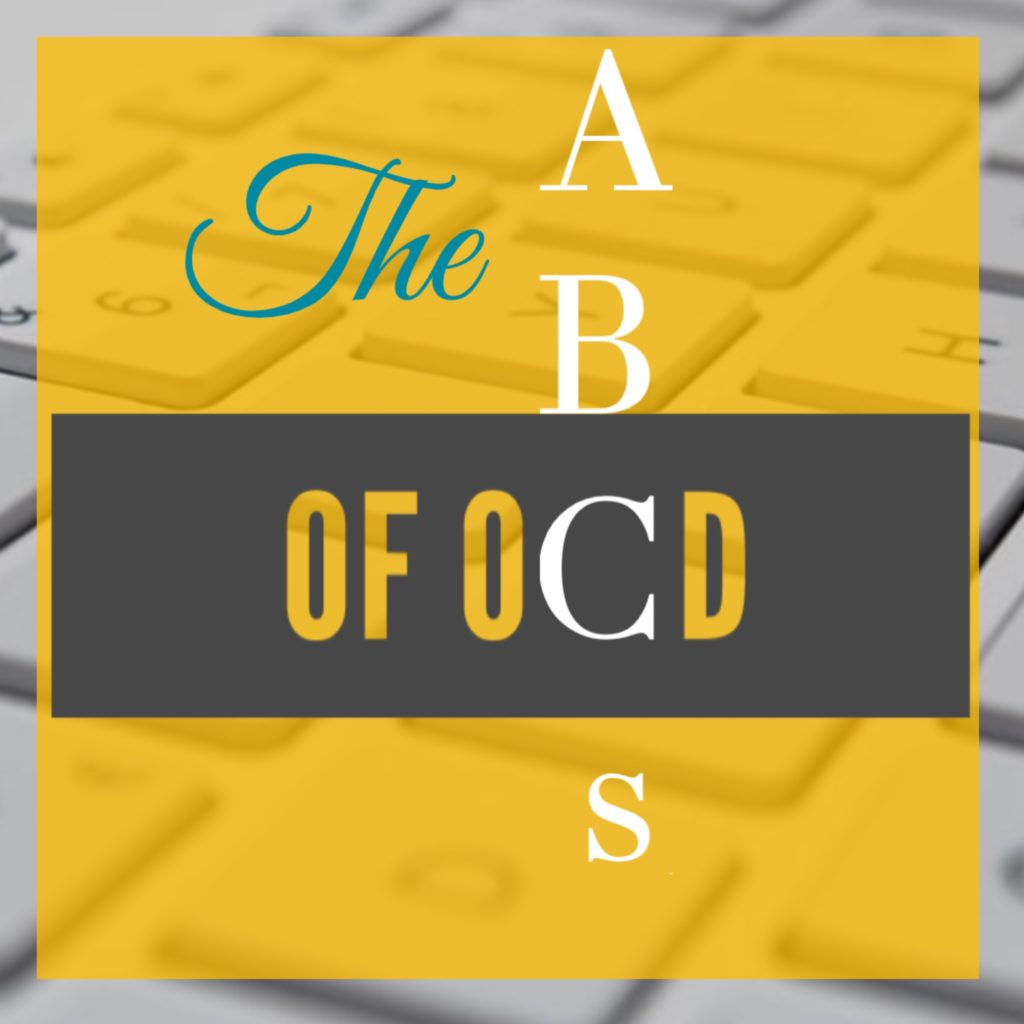What are the ABCs of OCD? I want to put a list together of the terms that tend to circulate and hover around the mentioning of this disorder. Terms that directly relate, whether good or bad, in hindrance or recovery. As a result, I am choosing each letter of the alphabet to create this list.
So, whether you are familiar with these feelings or not, I look to put a spin on each term that sheds a little more light and focus on how important it is to take our mental health seriously.
With that said, the ABCs of OCD are listed below:
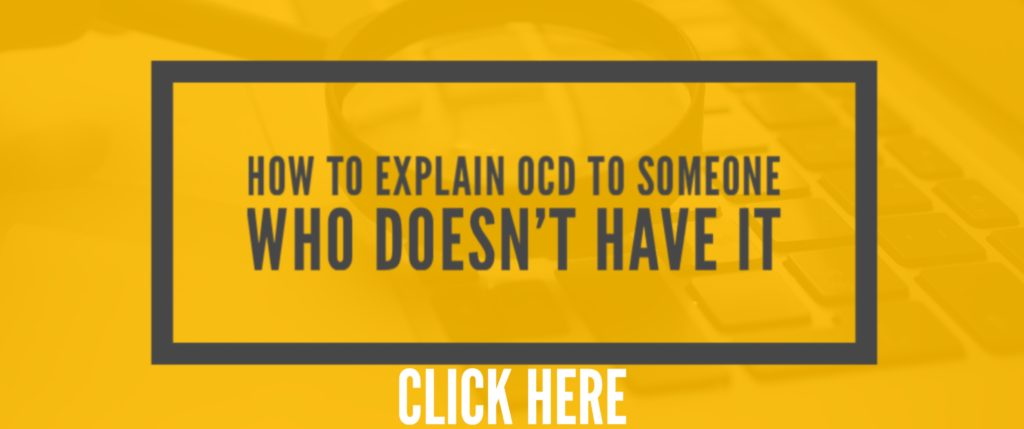
A – Anxiety:
Anxiety – A state of apprehension and psychic tension occurring in some forms of mental disorders.
That feeling in your chest where you feel so absolutely desperate for relief.
Breathe… we’re stronger than we realize in these moments.
B – Battle:
Battle – To fight (a person, army, cause, etc.).
This battle is mostly within, but choose your weapons wisely.
The choice to take OCD head-on is a giant step towards recovery.
C – Compulsions:
Compulsions – A strong, usually irresistible impulse to perform an act, especially one that is irrational or contrary to one’s will.
Various compulsions lead to an abundance of time wasted searching for temporary relief.
For example – excessive checking, repeating, arranging, and accumulating are just a few common compulsions connected with OCD.
D – Disorder:
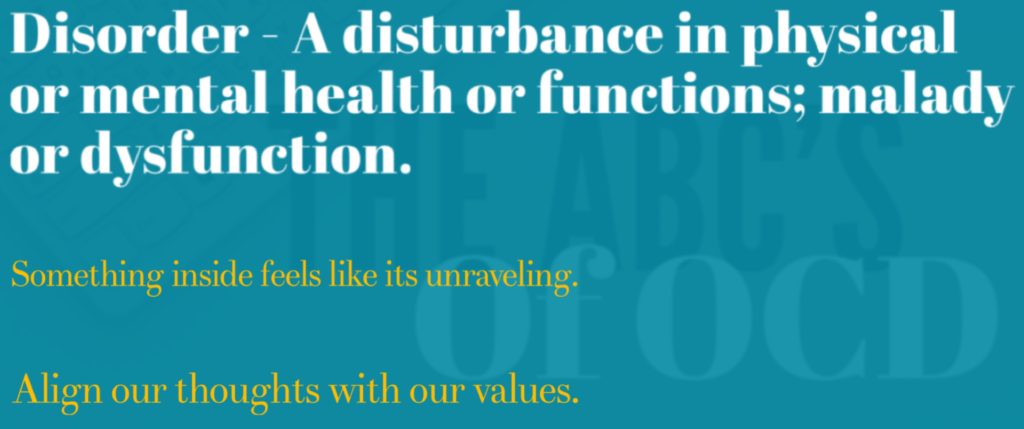
E – Exposure:
Exposure – A laying open or subjecting to the action or influence of something.
Avoidance only feeds into OCD.
Exposing ourself to that which triggers that tug of anxiety, means we are provoking the battle instead the battle provoking us.
F – Fear:
Fear – Anticipation of the possibility that something unpleasant will occur; something a person is afraid of.
The giant F-word that strikes even the strongest people.
‘Forget Everything And Run or Face Everything And Rise’ ~ Zig Ziglar
G – Guilt:
Guilt – To cause one to feel guilty.
Guilt can lead to inadequacy, depression, and resentment.
Though guilt isn’t always a bad emotion, OCD can leave one feeling guilty more often than necessary.
H – Hoarder:
Hoarder – A supply or accumulation that is hidden or carefully guarded for preservation, future use.
A compulsion that leaves one feeling that objects hold more value than they actually do.
There are sometimes more value in letting some things go.
I – Intrusive Thoughts:
Intrusive Thoughts – Thoughts that intrude; coming without invitation or welcome.
To those who suffer with Obsessive Compulsive Disorder, more effort is put towards avoiding these thoughts rather than dismissing the thoughts.
Intrusive thoughts are where the OCD cycle begins, leading to countless hours spent on compulsive behaviors as a result.
J – Jumble:
Jumble – To confuse mentally; muddle.
OCD has a way of muddling up reason with complexity.
Reason is there, rationality is present, but in a pinch, those don’t always make the most sense.
K – Keep Fighting:
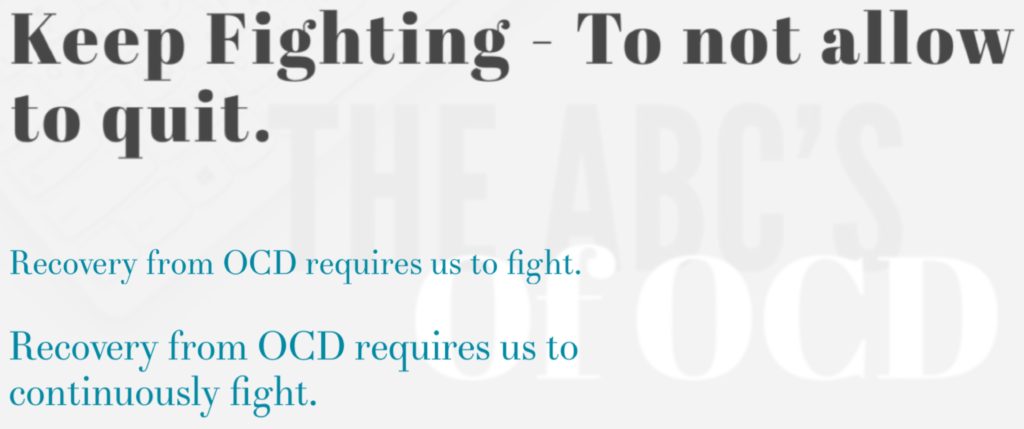
L – Loop:
Loop – As in replaying over and over within a cycle.
The OCD Cycle – Intrusive thought, anxiety, compulsions, relief (but the relief is only temporary, until it loops again).
The cycle loops at the next intrusive thought, allowing the disorder to then keep on disordering.
M – Mental:
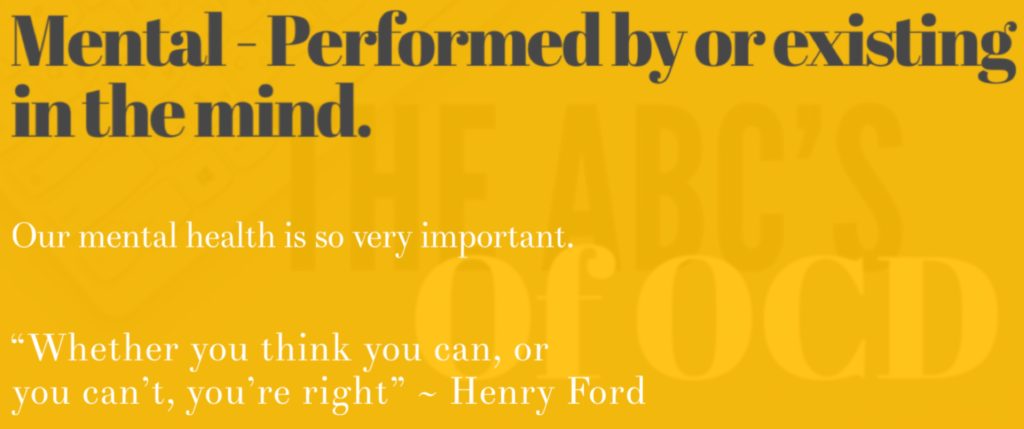
N – Not Alone:
Not Alone – Not exclusive.
OCD leads us to believe that we are alone in this battle, and that seclusion is best.
It is important for anyone suffering with OCD to know, you are not alone in this battle.
O – Obsessions:
Obsessions – The domination of one’s thoughts or feeling by a persistent idea, image, desire, etc.
Those unwanted intrusive thoughts, and images don’t easily go away.
There are obsessions that we seek, and obsessions that seek us.
P – Pure O:
Pure O – A form of OCD in which a person experiences obsessive, unwanted thoughts without visible compulsions or rituals.
Instead of combating their intrusive thoughts with visible rituals such as hand-washing or counting, they perform repetitive, mental rituals to minimize stress (intrusivethoughts.org).
Suffering in silence, making it easier to hide, and much more difficult to open up.
Q – Questioning:
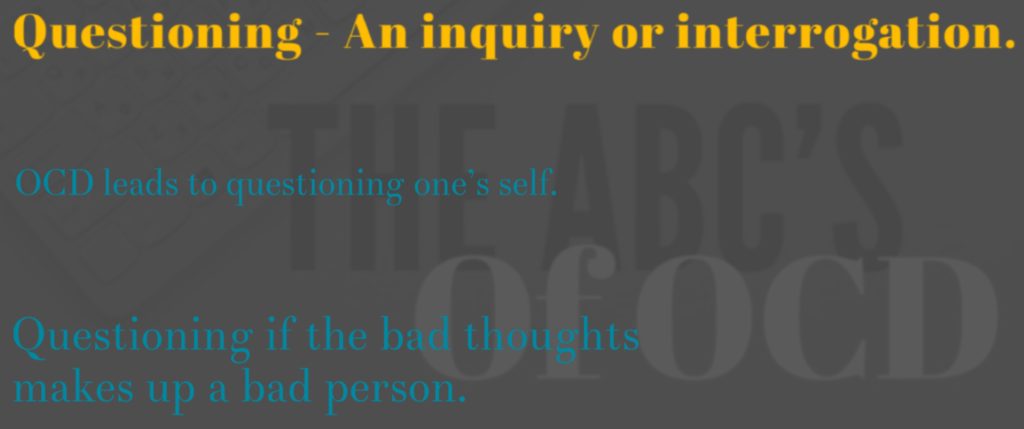
R – Repeating:
Repeating – To do, make, or perform again.
Repeating – To do, make, or perform again.
Thus replaying thoughts, rituals, compulsions, etc.
S – Stigma:
Stigma – A mark of disgrace or infamy; a stain or reproach, as on one’s reputation.
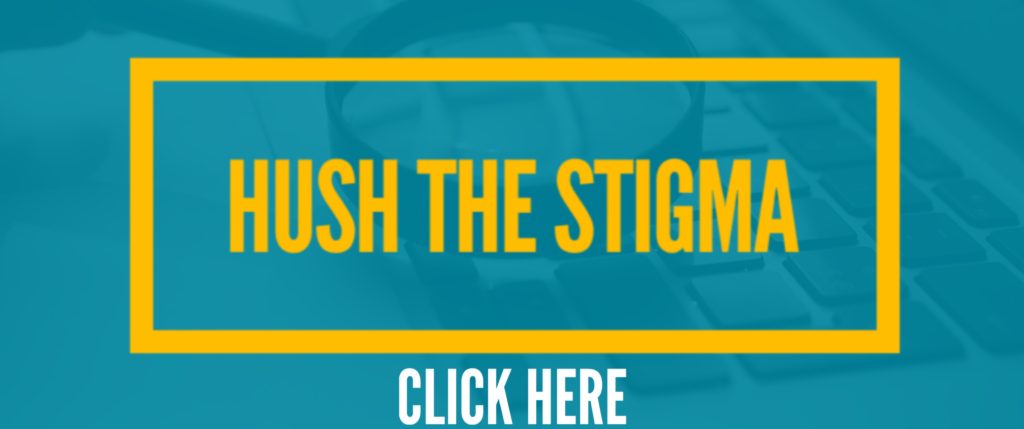
T – Triggers:
Triggers – To initiate or precipitate (a chain of events, scientific reaction, psychological process, etc.).
It hits, and then the cycle begins from obsession, anxiety, compulsion, to temporary relief.
Avoiding triggers initially relieves more stress, but makes OCD stronger in the long run.
U – Underachieve:
Underachieve – To perform below expectations or achieve less than expected.
More time is spent on compulsive behaviors, taking away focus from that which matters most.
Achieving in battle against OCD is a grand feeling.
V – Values:
Values – To regard or esteem highly.
OCD will challenge someone’s value.
OCD will attempt to mask everything’s true worth.
W – Worry:
Worry – To torment oneself with or suffer from disturbing thoughts; fret.
“Worry means you suffer twice” ~ Newt Scamander
“Worry does not empty tomorrow of its sorrow. It empties today of its strength.” ~ Corrie Ten Boom
X – X (Cancelling):
X (Cancelling) – To make void; revoke; annul.
A common compulsion with OCD is to create rituals to cancel or undo the intrusive thoughts.
Putting much effort into cancelling an intrusive thought or image puts much focus on many other intrusive thoughts or images to then enter.
Y – You Got This:
You Got This – Belief in self.
Believe in ourselves so that we can show OCD that we are boss.
Shout it – “You got this!”.
Z – Zone Out:
Zone out – Lack of focus.
OCD puts focus on OCD.
You, me, we, are NOT OCD!
ABCs Of OCD:
The real ABCs of OCD is that it’s versatile. OCD is diverse and non stereotypical to who it chooses. It is known to be hereditary and adaptable. Recovery is an option and it helps to be able to have someone who can listen and try to understand.
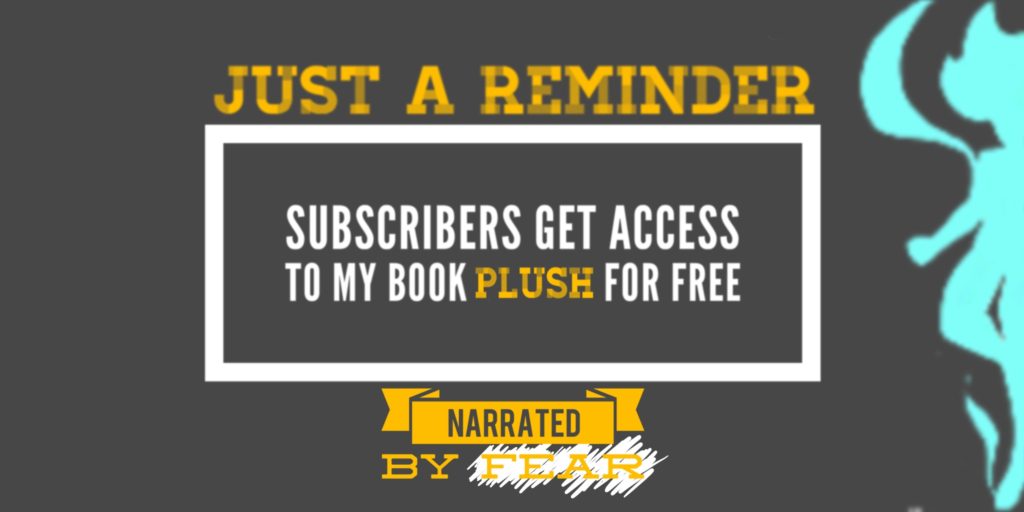
Free to subscribers
Let me know if you found this helpful. I am curious to hear your spin. Leave a comment or find me on Twitter @UghOCD or Instagram @brentleybigkid.
Resource: Dictionary.com
